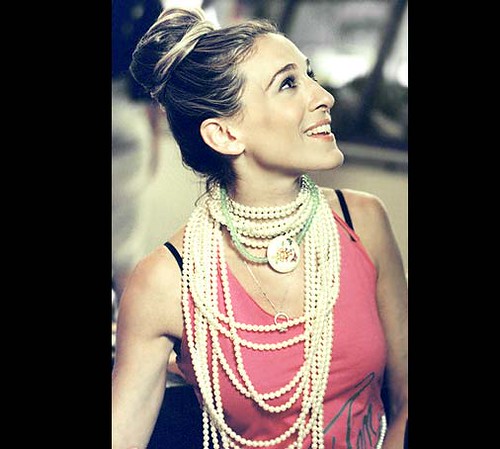When Erik Proulx lost his job last fall, along with hundreds of thousands of other Americans, he was devastated. Then, he made a movie, and he called it "Lemonade". Ok, so things didn't happen that quickly, or in exactly that order. Proulx used his newly inherited free time to think about the course of his career thus far, and to re-think where he wanted it to go from that point on. He learned that being laid off wasn't the curse it was made out to be; in fact, it was one of the best things that could have happened to him because he ended up discovering his real passion for documentary filmmaking.
Despite the sticky sweet saccharine message, this story is true - not only for Erik Proulx and the dozens of people he interviews in the film. But for countless others who in the last two years have found themselves with no job and almost unlimited amounts of free time - many, for the first time in their adult lives. Imagine what all that free time would feel like at first: hopeless, daunting. But once the initial shock wears off, imagine the sense of opportunity, empowerment, and excitement that would set in with the realization that you could literally do whatever you want.
This film, my blog, thousands of other blogs, books, news articles, and speaker series are all part of what I see as a turning tide for the American worker. It's a real acknowledgment that thirty years on the corporate track (or any single track) can rob you of your creativity, even of your self; and that a sustained pause is good, even necessary - no matter if it's forced or voluntary. It's an acceptance that although we can't control everything, we can thrive simply by controlling our selves, and the way we approach our chaotic, unbridled world. It's a shift in where we place our trust - not in ambiguous organizations and agencies and systems; but in ourselves, our own intelligences, talents and capacities; in our communities and networks of other like-minded people. It's a self-sustaining method of working and producing that is constantly evolving, and incessantly inspiring.
I think the greatest part of this newfangled approach to employment is the accompanying realization that you don't even have to wait until you get handed the lemons to make lemonade. You can make it anytime you want, if you're thirsty enough. If you're patient enough. And if you don't have the right tools or live in the right climate to grow a lemon tree - you can always find someone who does. Offer an resource of your own in return for their plot of land.
Well, I've gotta run. My seeds need to be watered.
Despite the sticky sweet saccharine message, this story is true - not only for Erik Proulx and the dozens of people he interviews in the film. But for countless others who in the last two years have found themselves with no job and almost unlimited amounts of free time - many, for the first time in their adult lives. Imagine what all that free time would feel like at first: hopeless, daunting. But once the initial shock wears off, imagine the sense of opportunity, empowerment, and excitement that would set in with the realization that you could literally do whatever you want.
This film, my blog, thousands of other blogs, books, news articles, and speaker series are all part of what I see as a turning tide for the American worker. It's a real acknowledgment that thirty years on the corporate track (or any single track) can rob you of your creativity, even of your self; and that a sustained pause is good, even necessary - no matter if it's forced or voluntary. It's an acceptance that although we can't control everything, we can thrive simply by controlling our selves, and the way we approach our chaotic, unbridled world. It's a shift in where we place our trust - not in ambiguous organizations and agencies and systems; but in ourselves, our own intelligences, talents and capacities; in our communities and networks of other like-minded people. It's a self-sustaining method of working and producing that is constantly evolving, and incessantly inspiring.
I think the greatest part of this newfangled approach to employment is the accompanying realization that you don't even have to wait until you get handed the lemons to make lemonade. You can make it anytime you want, if you're thirsty enough. If you're patient enough. And if you don't have the right tools or live in the right climate to grow a lemon tree - you can always find someone who does. Offer an resource of your own in return for their plot of land.
Well, I've gotta run. My seeds need to be watered.










